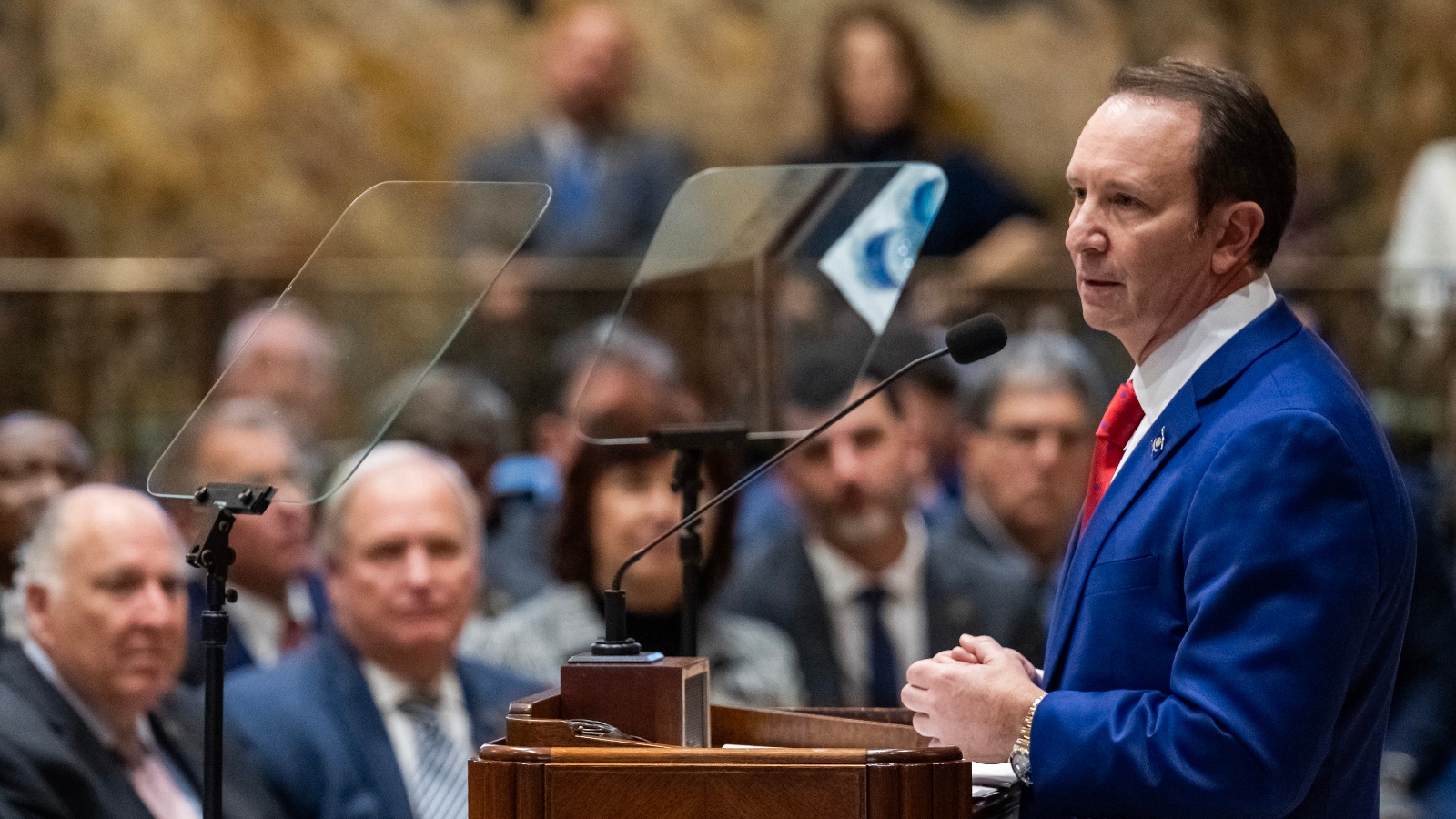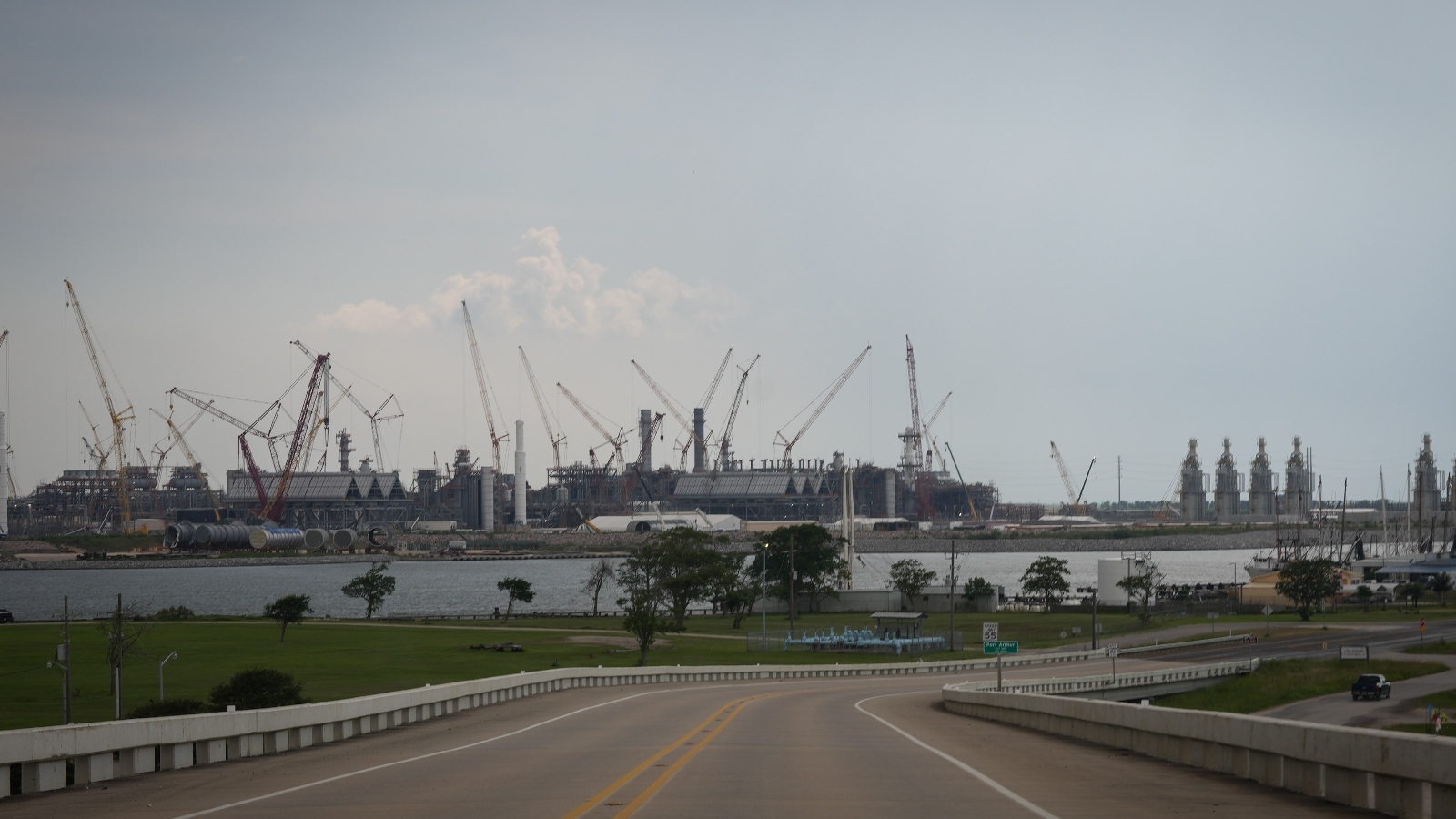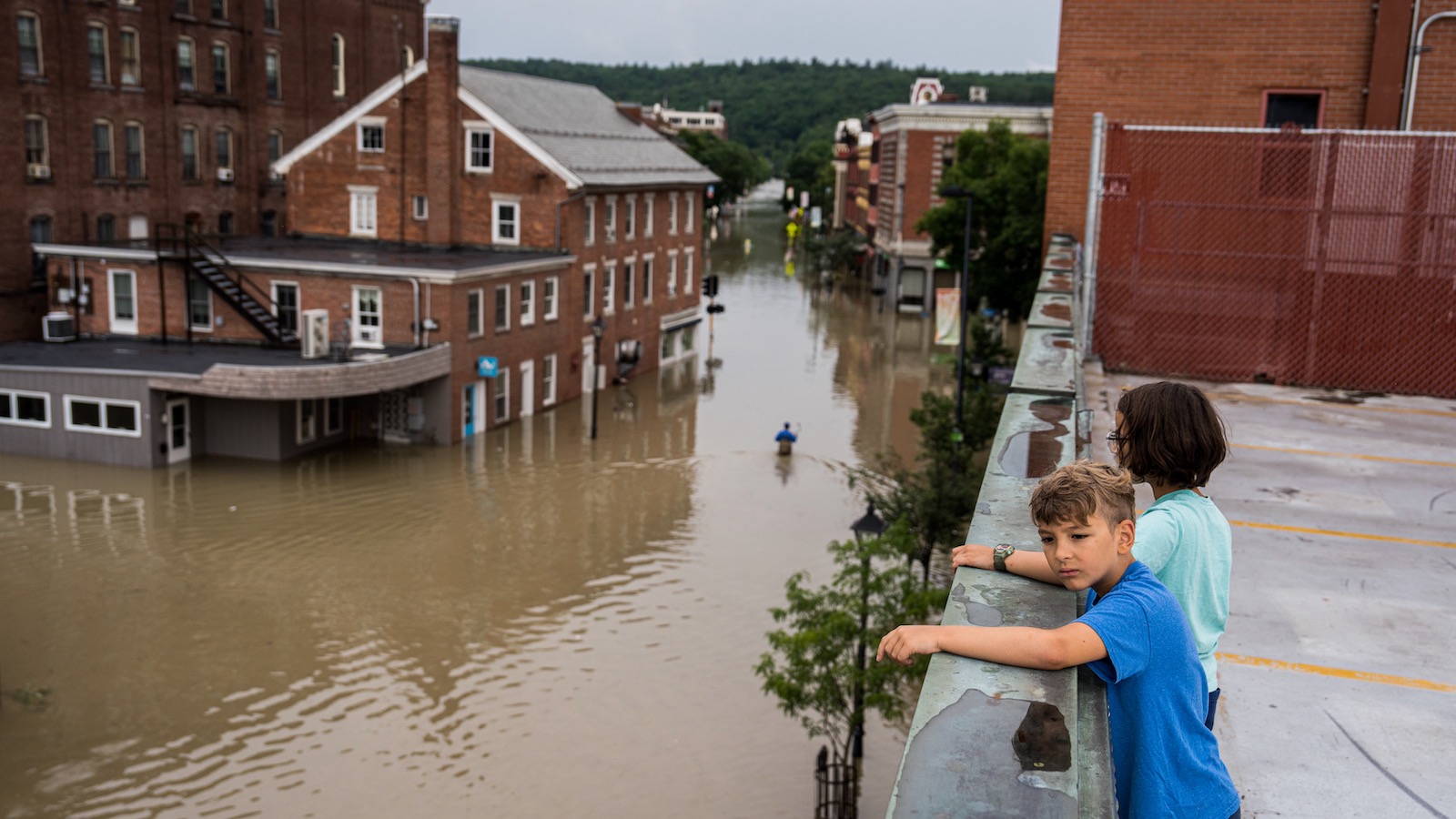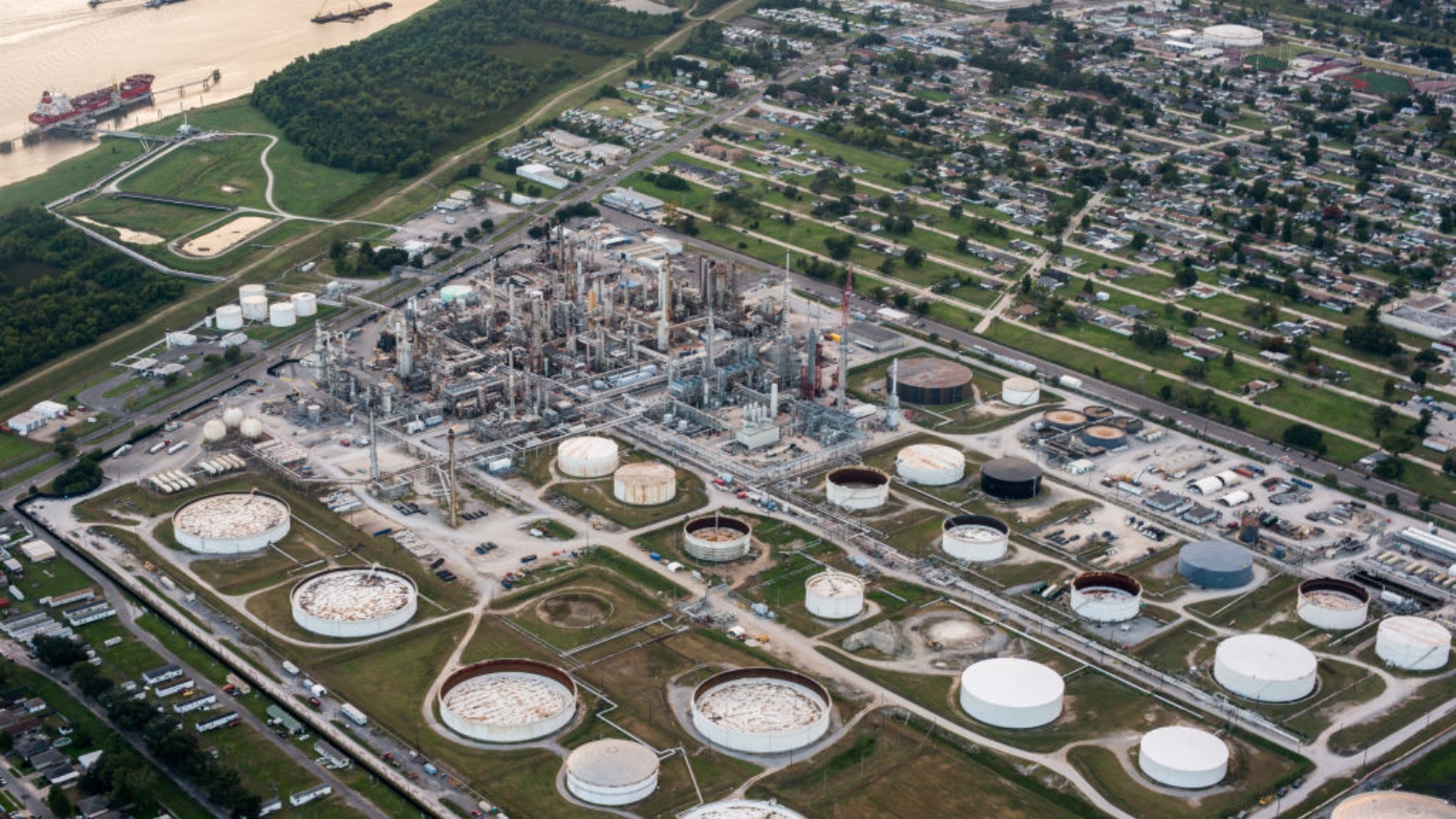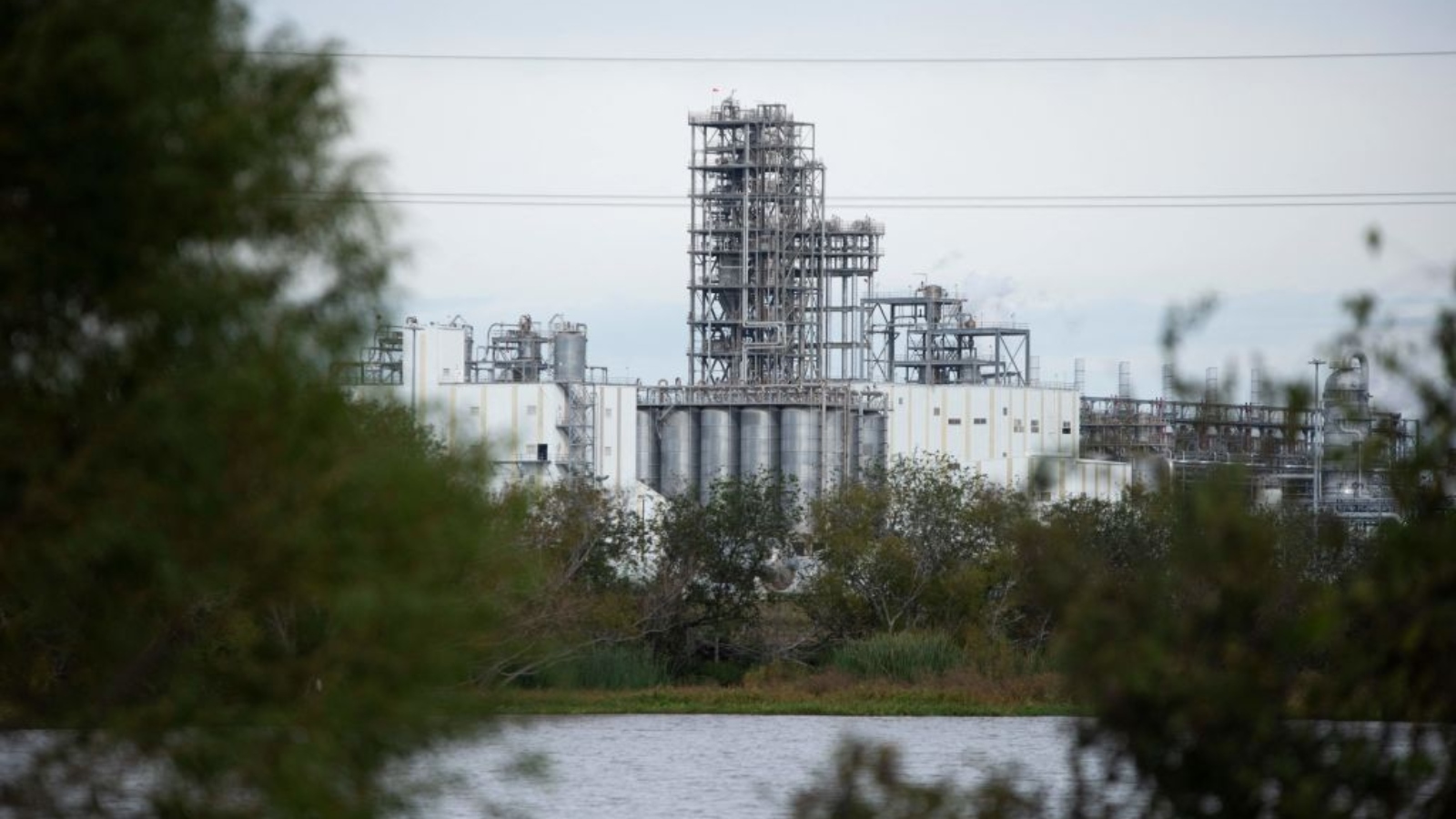This story was originally published by Floodlight, a nonprofit newsroom that investigates the powerful interests stalling climate action.
In his first four weeks in office, Louisiana Republican Governor Jeff Landry has filled the ranks of state environmental posts with fossil fuel executives.
Landry has taken aim at the state’s climate task force for possible elimination as part of a sweeping reorganization of Louisiana’s environmental bureaucracy. The goal, according to Landry’s executive order, is to “create a better prospective business climate.”
And in his first month, Landry changed the name of the Department of Natural Resources, the state agency with oversight of the fossil fuel industry, by adding the word “energy” to its title.
While the United States and other countries have vowed to move away from fossil fuels, Landry is running in the opposite direction.
Landry, who has labeled climate change “a hoax,” wants to grow the oil and gas industry that supports hundreds of thousands of jobs in Louisiana. Environmentalists blame the industry for the pollution that has harmed vulnerable communities in the state and for the climate change tied to increased flooding, land loss, drought, and heat waves in the Gulf Coast state.
A key indicator of where Landry is headed is the choice of Tyler Gray to lead the state’s Department of Energy and Natural Resources. Gray enters the new administration after spending the past two years working for Placid Refining Company as the oil company’s corporate secretary and lobbyist.
Before that, Gray spent seven years with the Louisiana Mid-Continent Oil and Gas Association, or LMOGA, his final two years serving as the lobbying group’s president. During his tenure with LMOGA, Gray helped draft the controversial 2018 law that criminalized protesting near the oil and gas pipelines and construction sites.
At the time, Gray said the law was needed as protection from individuals who attempt to unlawfully interrupt the construction of pipeline projects or damage existing facilities. Greenpeace USA found such laws — enacted in 18 states — were directly tied to lobbying by the fossil fuel industry and resulted in insulating more than 60 percent of the U.S. gas and oil industry facilities from protest.
Anne Rolfes with the Louisiana Bucket Brigade, a grassroots nonprofit focused on accountability in the petrochemical industry, has a grim outlook on Gray’s tenure. Her organization has been involved with many of the protests in question.
“His willingness to suppress people’s rights in favor of that industry is alarming,” Rolfes said.
“He’s been writing laws that favor the oil industry over the rights of people throughout his career,” she added. “But the state has never stood up to the oil industry. Under every administration there is this myopic idea of destroying our state via the oil and gas industry is somehow economic development.”
Neither Landry nor Gray’s office responded to multiple requests for comments.
Landry picks have oil, gas, and coal ties
Gray is one of several former fossil fuel executives Landry has selected to lead Louisiana’s environmental efforts.
Tony Alford, the former co-owner and president of a Houma-based oil-field service company that was accused of spilling toxic waste in a Montana lawsuit, is now the chairman of the Governor’s Advisory Commission on Coastal Protection. And Benjamin Bienvenu, an oil industry executive and petroleum engineer, is serving as the commissioner of conservation within the Department of Energy and Natural Resources.
Landry also tapped Aurelia Giacometto to lead the state’s Department of Environmental Quality. It was reported that Giacometto, the first Black woman to serve in the position, had ties with skeptics of climate science when she served under then-President Donald Trump as head of the U.S. Fish and Wildlife Service. She currently sits on the board of a coal manufacturing company.
And Landry’s pick for the state’s new leader for the Department of Wildlife and Fisheries, Madison Sheahan, doesn’t have a background in wildlife — or fisheries. She enters the job after serving as the executive director of the South Dakota Republican Party and managing Trump’s re-election campaign in that state. The agency led by Sheahan is one of the state entities responsible for investigating oil spills.
At a recent press conference, Landry said he seeks to expand oil and gas refining in Louisiana, seeing it as the only way to increase job opportunities for the middle class.
For environmentalists, these are worrying signs for a state that is the site of a boom in proposed liquified natural gas facilities and carbon capture projects that they say threaten to increase Louisiana’s already high contribution of climate-changing greenhouse gases.
In late January, President Joe Biden announced his administration was halting approvals of new liquified natural gas export facilities to examine the need for the additional capacity and the environmental impact of such projects. The temporary delay reportedly affects five projects in Louisiana and one in Texas.
Louisiana’s ‘sacrifice zone’
Landry’s moves weren’t unexpected, advocates say, given his past actions as state attorney general and his combative stance toward environmental justice issues.
Gray’s appointment is “disappointing but not surprising,” said Jackson Voss, climate policy coordinator for the Alliance for Affordable Energy.
“Unfortunately, from our perspective, the history of the [Louisiana] Department of Natural Resources has always been very deeply connected with the oil and gas industry,” Voss said. “In some ways it helps us, because there’s not going to be very many surprises about where Secretary Gray will align on certain issues.”
In its latest report, Human Rights Watch highlighted the environmental harms and health-related issues the oil and gas industry is accused of inflicting on predominantly Black communities in the southeast Louisiana corridor known as Cancer Alley. The group is asking state leaders to phase out fossil fuel production and to halt any new developments or expansions to existing fossil fuel and petrochemical facilities.
Author Antonia Juhasz interviewed dozens of residents living in Cancer Alley who talked about miscarriages, high-risk pregnancies, infertility, respiratory issues and a multitude of other health impacts in their communities. They attribute the maladies to years of pollution and dangerous emissions from the high concentration of polluting industries, especially in southern Louisiana.
“The fossil fuel and petrochemical industry has created a ‘sacrifice zone’ in Louisiana,” Juhasz, senior researcher on fossil fuels at Human Rights Watch, said in a prepared statement. “The failure of state and federal authorities to properly regulate the industry has dire consequences for residents of Cancer Alley.”
Landry takes aim at oil and gas limits
As the state’s attorney general, Landry pushed lawsuits against restrictions the Biden administration tried to implement on offshore oil lease sales and the cancellation of the Keystone XL pipeline.
He also sued over the Environmental Protection Agency’s push to better regulate emissions from oil and gas facilities in Cancer Alley.
A Trump-appointed federal district court judge in western Louisiana recently sided with Landry on that lawsuit. U.S. District Judge James Cain said in his opinion that the federal agency’s enhanced oversight of proposed projects in Cancer Alley communities overstepped its powers and that it was “imposing an improper financial burden on the state.”
As attorney general, Landry also sued to obtain correspondence between EPA, environmentalists and certain journalists.
As governor, Landry has opposed Biden’s climate initiatives, including the push to increase manufacturing of electric vehicles. And Landry has claimed that boosting renewable energy in Louisiana, including solar and wind, would force the state into “energy poverty.”
Oil and Gas Association applauds appointment
Landry’s pick of Gray was lauded by the president of the Louisiana Mid-Continent Oil and Gas Association. In a prepared statement, Mike Moncla praised Gray for knowing their industry “backwards and forwards.”
“This appointment marks the state of a new era for our state’s oil and gas industry,” Moncla wrote. “We know that he will be an incredible asset for our industry.”
At LMOGA, Gray also pushed back at any efforts to limit offshore drilling and domestic energy production to reduce planet-warming emissions. Gray said the country needed “sound, science-based policies” and solutions to address climate change that also promote “domestic energy development” while not stifling the state’s economy and job market.
LMOGA is a staunch supporter of carbon capture and sequestration. The agency Gray now leads recently received primary regulatory oversight from the federal government for the wells used to pump carbon dioxide underground for permanent storage.
The technology is being touted as the solution to reducing greenhouse gas emissions, but debates are ongoing over its safety and effectiveness.
Environmental advocates argue that carbon capture and storage is just a ploy to prolong the life of the fossil fuel industry instead of transitioning to cleaner energy sources like wind and solar. They lack confidence in the state’s ability to properly permit carbon capture projects with Gray at the helm.
“With Gray’s appointment and then an already heavily underfunded and understaffed agency, it very much feels like they’ll be sending those permits through instead of truly evaluating them one by one,” said Angelle Bradford, a spokesperson with the Delta chapter of the Sierra Club. “It’s once again the usual good-old-boy mentality where we’re putting people in positions who not only won’t follow the rules but create rules that make it harder for the other side, which is us.”
She added, “Louisiana is not taking the climate crisis seriously.”

